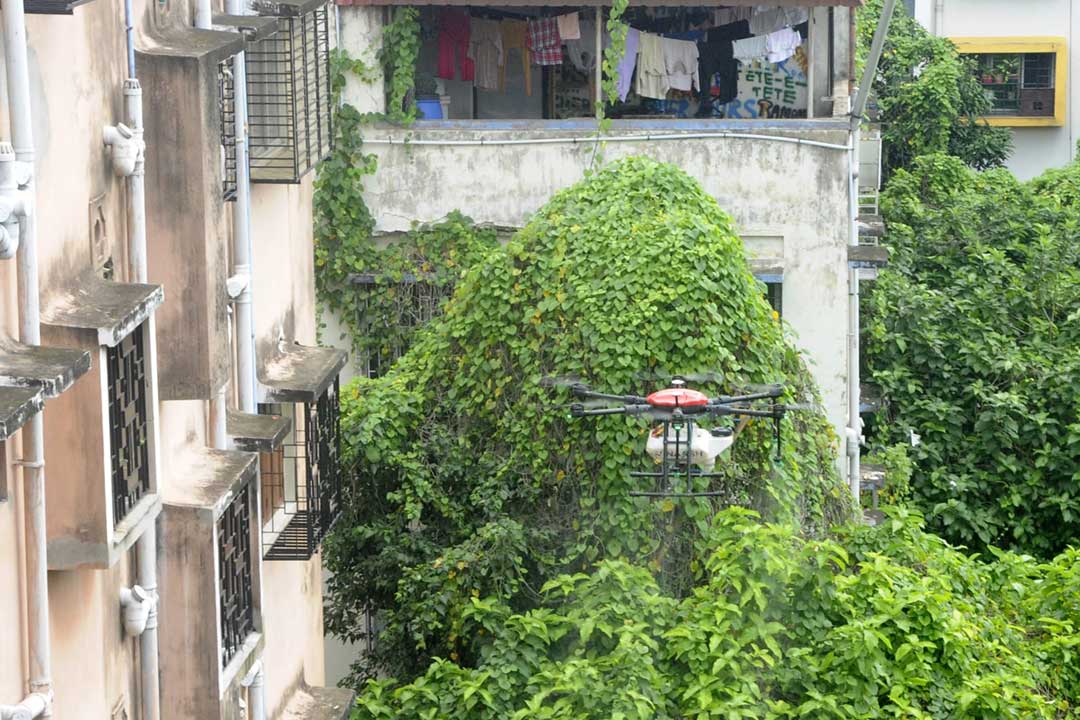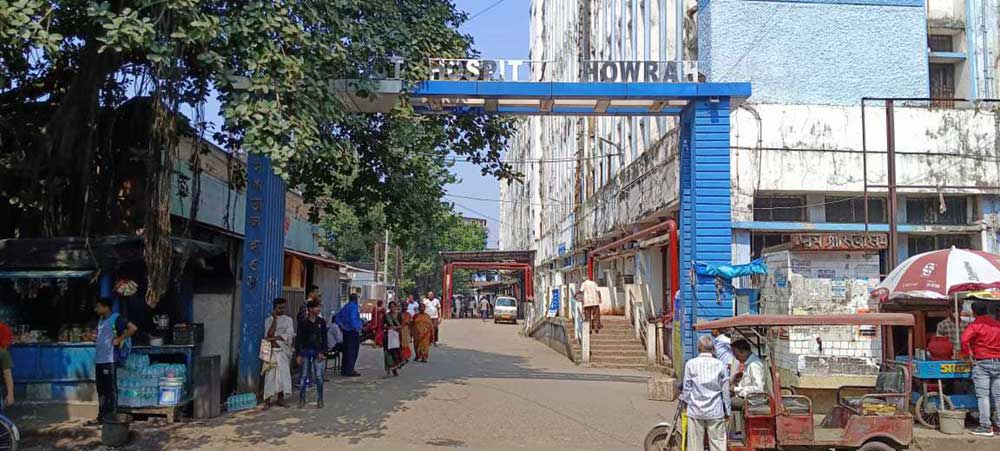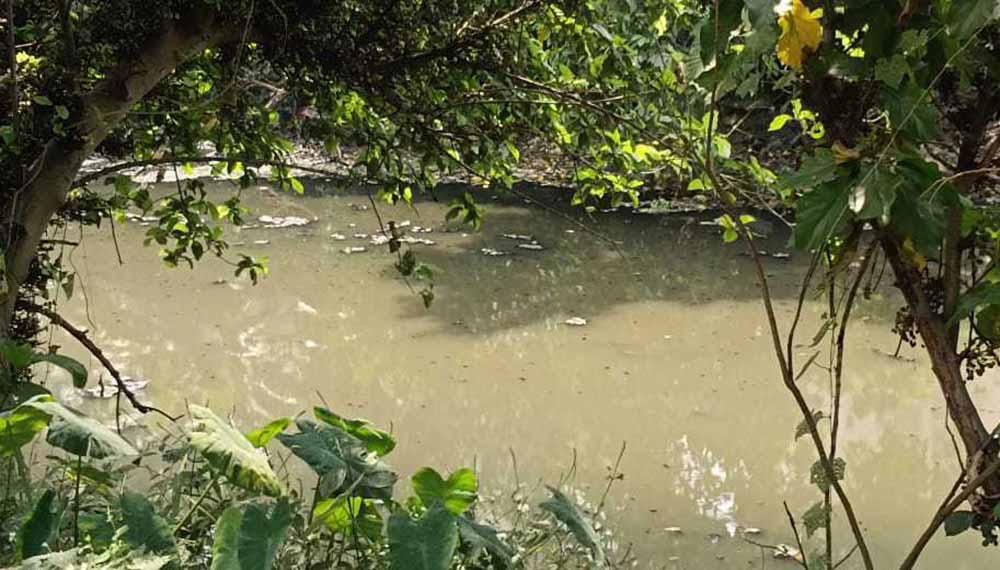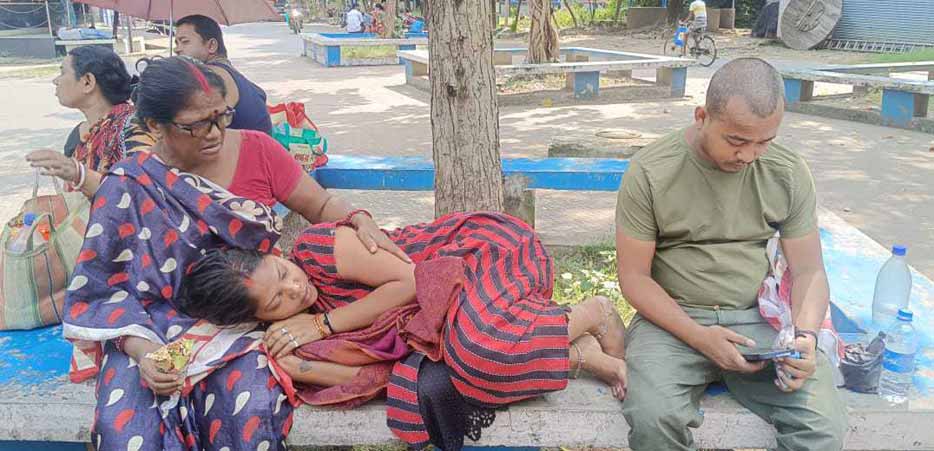Dengue spikes: the view from West Bengal
Amid climate change, vector-borne diseases are spreading at increased rates, across larger areas. West Bengal in India is battling rising rates of mosquito-transmitted dengue fever.
- 1 December 2023
- 5 min read
- by Nasir Yousufi

As 33-year-old Prushotam Das from West Bengal boarded a train home from Bengaluru in Karnataka, he began to feel nauseous. His head ached mildly. By the time he reached Tapanpur, his native village, the young techie was down with a high fever and severe headache. Within a day, tests from a local hospital confirmed: Das was suffering from dengue fever.
Dengue, the sometimes fatal, painful viral infection, has been spiking in many parts of India in recent years, with the of West Bengal, Kerala, Karnataka and Maharashtra particularly hard-hit.
“There is hardly any money left now as I have not been able to go for work. I hope she gets well soon so that I can return to work again.”
– Sourav Das, whose wife is being treated in hospital for dengue
In 2022, India recorded an alarming 230,000 dengue cases, more than double the 2018 tally. As per figures available from the National Centre for Vector Borne Disease Control, part of the Ministry of Health and Family Welfare, the country had reported 94,198 dengue cases and 91 deaths until the third week of September this year, with thousands more cases emerging during October and November.
West Bengal's dengue case count for 2022 was the highest countrywide, and its rates of infection have continued to spike into 2023. Health department officials say that this year, the state had registered more than 76,000 cases to the last week of October – about 10,000 more than the 67,271 cases registered in the previous year.
Last year, at least 30 dengue patients died in the state. An as-yet untallied number of lives have been lost to the viral infection in just the past few weeks, say health workers.
But even a non-fatal battle with the debilitating viral disease can tip a family into crisis. Thirty-three-year-old labourer Sourav Das from Kona area in Howrah district has been unable to go to work for the last 12 days, as he attended his ailing wife Mohini being treated in district hospital for dengue.

Credit: Nasir Yousufi
"There is hardly any money left now as I have not been able to go for work. I hope,she gets well soon so that I can return to work again," said Sourav Das.
"We saw an increase in the dengue infections this year. 'Til ending October , there was a heavy workload on us. A large number of people with dengue fever came here for treatment," said Dr Manas Bhattacharya, a medic from Infectious Disease Hospital, Beliaghati, Kolkata.
West Bengal fights back
In response, the state administration has undertaken a slew of measures to help contain the spread of the disease. In order to reduce mosquito breeding sources, the authorities conducted a two-day cleanliness drive across villages, municipalities, government premises, hospitals and schools in mid-October, in dengue hotspots.
Dr Sajal Biswas, the Deputy Chief Medical Officer of Bakura district near Kolkata, said that fever clinics and testing facilities are helping achieve timely diagnoses. Still, he said, there is a need to strengthen these facilities, especially in rural areas. Where cities have typically been understood as the major risk zones, he explained, recently the state has witnessed a rise in the number of dengue infections cropping up in rural pockets.
Choked drainage canals are a risk zone in both rural and urban spaces, as stagnant water is an ideal spot for the vector mosquito to breed. To prevent the obstruction of drainage and improve waste management, the government intends to start an awareness campaign against the use of single-use plastic in the state.

Credit: Nasir Yousufi
According to Firhad Hakim, Urban Development Minister, mass awareness among the general public regarding the sources of mosquito breeding is important. ASHA workers, panchayats and volunteers can play important role in extending public understanding of risk zones, he added.
Dengue conquers new ground
Dengue, transmitted by the Aedes aegypti mosquito, is one of the fastest growing vector-borne diseases in India. Affecting just a few states and union territories in 2001, by 2022, it had spread to almost every corner of the subcontinent.
Have you read?
The evidence says that's connected to climate change. Temperature, humidity and rainfall are key climatic factors for the breeding of Aedes mosquitoes. The late withdrawal of monsoon and warming global temperatures have stretched the dengue transmission window in India.
Further, experts believe that intense urbanisation, rapid population growth and increased rates of travel by that population create even more favourable conditions for virus and its mosquito host to spread.

Credit: Nasir Yousufi
"More population means construction of more houses and colonies in the country. But at many places in the country, the urbanisation has been unplanned severely affecting the sanitation in the area. And this poor sanitation has emerged as a breeding ground for vector-borne disease like dengue in many parts of the country, " said Dr Amiya Kumar Hati, a leading dengue expert and former director of the Kolkata School of Tropical Medicine in West Bengal.
The late withdrawal of monsoon and warming global temperatures have stretched the dengue transmission window in India.
"Due to the increased and swift mobility of people, the chances of the spread of disease from one place to another place become quite high," Hati added.
Vaccines on the horizon
Currently, no vaccine against the viral disease is rolling out in India, but several candidates, including some home-grown products, are in the works. Indian Immunologicals, for example, this year declared an intention to launch its dengue vaccine by 2026. Rajeev Dheere, executive director of the Pune-based Serum Institute of India (SII) this week said the drug manufacturer has applied for a licence to conduct phase 1 and 2 trials on their candidate vaccine, Dengusiil, in India. Earlier this year, Dengusiil fared well in phase 1 trials in Australia.
More from Nasir Yousufi
Recommended for you









